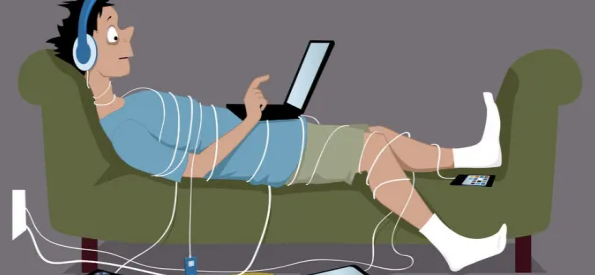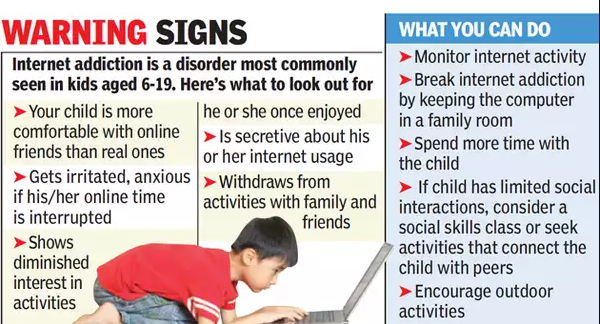Free Courses Sale ends Soon, Get It Now


Free Courses Sale ends Soon, Get It Now



Disclaimer: Copyright infringement not intended.
Context
Internet Addiction
|
Case Study An Internet Deaddiction Clinic, was launched in 2021, the Government Omandurar Medical College Hospital. The Clinic has been catering to clients with overuse of the Internet in various forms. This includes video games, social media, online shopping, online gambling and online pornography. Some are victims of cyberbullying and suffer from sleep disorders, depression, anxiety, strained interpersonal relationships, poor school or work performance.
Recently, the majority of the 67 persons who recently walked into the Internet Deaddiction Clinic at the Government Omandurar Medical College Hospital were adults. 10 of them were aged five to 10 years and 13 of them were aged 11 to 18 years. Among them was a 14-year-old boy, who was brought by his mother with complaints of abnormal hand movements, staying awake late at night to play mobile games, academic decline and lack of interest to write the board exams. The boy, according to doctors, stayed awake till 3 a.m. to play mobile games and compete with friends. He had lost weight and his appetite had reduced. They show less involvement in studies, experience sleep disturbances, anger issues, social withdrawal and have reduced their interaction with family members. |
Signs and symptoms
Emotional Symptoms of Online Addiction
The following symptoms are typical of online addicts:
Physical Symptoms of Online Addiction
The following symptoms are characteristic of someone who uses the computer for a very long period of time:
Internet addicts are known to be often confused between reality and the online virtual world, causing many serious problems including maladjustment to society, deep attachment to the virtual world, health issues, and conflict with family members.
Way Ahead
|
Rajasthan government advisory An advisory by Rajasthan government warned parents and teachers to look out for abnormal behaviour in children to detect and prevent addiction to online gaming. The recent advisory listed measures to protect children from getting overly involved in online gaming, which has become a growing concern of late. The Rajasthan government advisory advised parents to establish an “internet gateway" at home which will help in effectively monitoring their child's internet usage. The document also suggested that it should be ensured that the child accesses internet from a computer placed in family space. Other In India, the Central Board of Secondary Education (CBSE) has recently launched a counseling app for students called “Dost for life,” which includes counseling for Internet addiction disorder, apart from counseling for depression, anxiety, SLD, etc. Furthermore, in India, treatment for Internet addiction is provided through special clinics for behavioral addiction, in some institutions such as AIIMS, NIMHANS, and RML Hospital. Furthermore, while there are no national policies or programs targeting Internet addiction, the Indian Psychiatric Society (IPS) has developed guidelines for the management of Internet addiction. |

Final Thought
https://epaper.thehindu.com/Home/ShareArticle?OrgId=GV29Q7PQR.1&imageview=0
© 2024 iasgyan. All right reserved